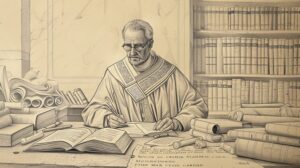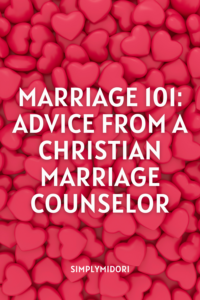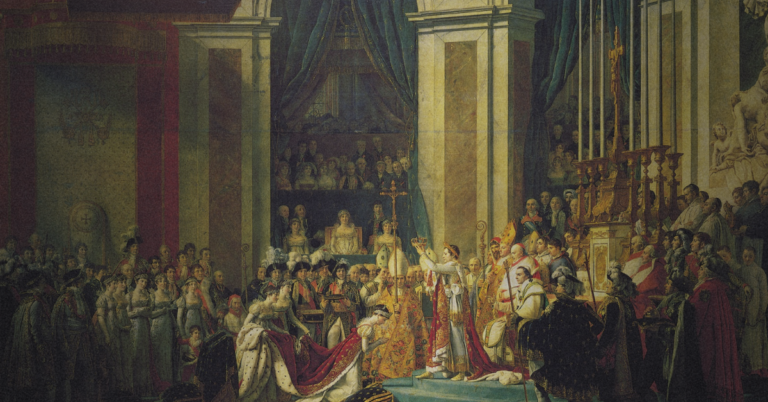Welcome to Week 2 (you read week one here) of our 10 week Bible study journey through the remarkable story of Ruth. As we continue to explore the life and legacy of this extraordinary woman, we find ourselves amidst the ever-shifting landscape of 2024, where navigating the challenges of womanhood feels far from predictable.
Ruth’s story serves as a beacon of inspiration in a world where the pressure to take a stance on various issues is relentless. Like us, Ruth faced uncertainties and complexities in her journey—yet she remained steadfast in her faith and convictions, refusing to be confined to a single category or narrative.
As we delve deeper into Ruth’s narrative this week, we discover valuable lessons on resilience, determination, and the power of faith amidst adversity. Ruth’s unwavering commitment to her family, her willingness to embrace change, and her courage to step into the unknown offer us guidance as we navigate our own roles as mothers, wives, career women, and change-makers in today’s world.
Join us as we draw strength and inspiration from Ruth’s story, recognizing our significant role in God’s grand narrative, regardless of the spheres of influence we choose. Together, let’s embrace the complexity of our identities and make a difference, refusing to conform to societal pressures that seek to limit us to a single path.
Related Reading: An Overview of Our 10 Week Bible Study
Why Are We Studying Ruth?
The book of Ruth offers a captivating glimpse into everyday life in rural Israel around 1100 BC, contrasting with the grand historical narratives found in other biblical books. Rather than focusing on epic events, it delves into the ordinary lives of people, particularly women, revealing the harsh realities they faced in that society, which resonates with women today.
Ruth, a non-Jewish woman, displays remarkable faith in the God of Israel and experiences divine blessing amidst her challenges. Her journey takes her from her homeland through desolate terrain to a small town, where she forges a new life and marries a farmer.
While Ruth’s story might seem like a quaint romance, it’s a testament to a woman’s courage and resilience in navigating daunting circumstances. Like other biblical heroines such as Tamar, Deborah, and Esther, Ruth challenges societal norms through subtle yet profound narrative twists. Through her experiences, the book highlights how God intervenes in the lives of ordinary individuals, leading to personal, national, and universal redemption.
Introduction To Ruth Bible Study
Many of us gauge our ability to serve God based on material possessions and circumstances. We might believe only those with power and wealth can make a difference.
However, the story of Ruth, a widow with no money, living in a foreign land, and responsible for her mother-in-law’s care, challenges this notion. Despite her humble beginnings, Ruth’s life significantly impacts God’s kingdom. Her story teaches us valuable lessons about ourselves and the nature of our God.
Who Is Ruth?
Ruth is a central character in the biblical Book of Ruth, which is found in the Old Testament. She is a Moabite woman who becomes Naomi’s daughter-in-law, an Israelite woman. After the death of her husband, Ruth chooses to accompany Naomi back to Bethlehem, demonstrating her loyalty and commitment to her mother-in-law.
In Bethlehem, Ruth works in the fields to provide for herself and Naomi, where she meets Boaz, a wealthy landowner. Through a series of events, Ruth and Boaz eventually marry, and Ruth becomes the great-grandmother of King David, making her an ancestor of Jesus Christ according to the New Testament genealogies. Ruth’s story is often celebrated for its themes of loyalty, faithfulness, and God’s providence.
A Brief Summary Of Ruth
The Book of Ruth encapsulates a profound message within its concise narrative. It illustrates how God intricately weaves His grand story through the seemingly insignificant lives of everyday individuals. This small story is strategically placed within the broader context of the Bible, highlighting God’s presence and activity in the mundane experiences of ordinary people.
Throughout the narrative, characters encounter common life challenges such as death, relocation, financial struggles, and familial responsibilities. Yet, amidst these trials, they discover that God is orchestrating a story of redemption through every detail of their lives.
Ultimately, the Book of Ruth encourages us to recognize the significance of our day-to-day experiences within the scope of God’s greater plan for our lives and the world. It prompts us to view our ordinary routines and challenges as integral parts of God’s unfolding narrative of redemption and restoration.
What was Ruth in the Bible known for?
Ruth’s story holds profound significance because it exemplifies the power of commitment to family and trust in God’s providence. Despite challenging circumstances, Ruth remains steadfast in her loyalty to her mother-in-law, Naomi, and chooses to accompany her to Bethlehem. This commitment to family sets the stage for her remarkable journey.
Moreover, Ruth’s decision to marry Boaz based on her faith and trust in God’s plan highlights the importance of aligning our lives with divine purpose rather than societal norms or personal preferences. By trusting in God’s guidance, Ruth finds herself in the lineage of King David, one of the most renowned figures in biblical history.
After marrying Boaz, Ruth becomes Obed’s mother, who becomes Jesse’s father. Jesse, in turn, becomes the father of King David, making Ruth David’s great-grandmother. This lineage underscores the profound impact of Ruth’s faithfulness and trust in God, ultimately leading to the establishment of one of Israel’s greatest kings.
Ruth’s story reminds us that our decisions and actions have far-reaching consequences beyond what we can imagine. It demonstrates how God can use ordinary individuals to fulfill His divine purposes and bring about significant outcomes in the grand tapestry of history.
How Does Ruth Relate To Women In 2024?
In Ruth’s story, we see a woman committed to her family’s well-being, willing to trust and follow her mother-in-law, Naomi, even in uncertain circumstances. This commitment resonates with women today who prioritize family bonds and support. Ruth’s trust extends beyond her immediate family as she demonstrates faith in her new community and, ultimately, in her husband, Boaz.
In considering her marriage to Boaz, Ruth’s decision challenges contemporary notions of choosing partners based solely on external factors or societal expectations. Rather than pursuing the “best” choice regarding status or wealth, Ruth’s union with Boaz reflects a deeper commitment to destiny and lineage, trusting God’s providence over human judgments.
In today’s world, where societal pressures and expectations often influence relationship choices, Ruth’s story encourages women to prioritize trust, commitment, and faith in their decisions, even if they diverge from conventional wisdom or perceived advantages. It reminds us that true fulfillment and blessing come from aligning our lives with God’s purpose, even when embracing the unexpected or unconventional.
Day One of Ruth’s Bible Study
Understanding the laws concerning redemption is crucial to grasping the story’s context. These laws, given by God, aim to protect widows and maintain family inheritance. They highlight the importance of caring for the vulnerable and preserving familial lineage.
Through these laws, we learn about the values upheld within ancient Israelite society and gain a deeper understanding of the narrative unfolding in the book of Ruth. Hence, we will start by reading Deuteronomy 25:5-6 and Leviticus 25:23-28.
1. What do you learn from these verses about these laws?
Next, we will read Ruth Chapter 1, verses 1-22. Even if you’re already familiar with the tale, approach it as if you’re encountering it for the first time. Then take a moment and reflect below:
2. Elimelech faced a tough choice regarding his family’s welfare. Moving to a pagan land for food may have seemed practical. Are there times when you have chosen practicality or logic over faith? Looking back, do you regret those choices?
3. In your own words, explain Naomi’s argument to her daughter-in-law in Ruth, relating her points to the laws of redemption.
4. In light of this chapter, how did Naomi’s tragedy affect her? How would you have felt if you were Naomi? If you were Ruth? (Blame, Anger, Sadness)
5. Reread Ruth’s words to Naomi in 1:16-17 in light of Naomi’s attitude at the time because of the tragedies she had endured. What insights do you gain about Ruth?
6. Consider Ruth’s words in 1:16-17. Do you have that kind of committed, unconditional love for those in your family? What if they are hard to love because of sin, bitterness, depression, bad choices, or illness?
7. Prayer: Write a prayer or poem regarding your desire to love others as Ruth loved Naomi. Include confession for your lack of love for those who are hard to love.
Day Two of Ruth’s Bible Study
Start today by reading Ruth 2:1-23. Then, take a moment to reflect on the passages and jot down your thoughts below:
8. What principles and applications for the modern Christian do you glean from God’s Old Testament plan to provide for the needy?
9. Has the need ever arisen for you to humble yourself in taking care of the needs of your family? Describe the situation. What did you learn from the experience?
10. What do you learn about Ruth’s character in this chapter? As you answer this, explain what she says or does that reveals each quality.
11. Ruth 2:20 describes Naomi’s relationship with Boaz. He is their “redeemer”. Review Leviticus 25:23-28, the laws of redemption that you read yesterday. Then, look in a regular English dictionary and write the redeem and redeemer definitions. What insights do you have about Boaz’s relationship with Naomi?
12. If you were Ruth, what feelings may you have had after the encounter with Boaz, considering the situation?
13. The Old Testament laws of redemption involve the principle that we have responsibility for extended family. How are you caring for your extended family’s needs?
14. Prayer: Write down your prayer asking God to show you one particular way to care for the needs of your extended family.
Day Three of Ruth’s Bible Study
Start today by reading Ruth 3:1-18. Then, take a minute to reflect on the passages and jot down your thoughts below:
15. We see Boaz respond quickly and abruptly to Ruth’s needs. How do you respond to people who come to you with emotional and social needs?
16. How do you respond to your family’s emotional and social needs? (Think about how you respond to your immediate family- then think about how or if you even respond to the ones you don’t like or aren’t close with)?
17. While Ruth and Boaz did not have a sexual encounter on the threshing floor, there is no doubt that Ruth’s actions are symbolic and constitute a marriage proposal. As you meditate upon the chapter, perhaps rereading it, write down any insights into Ruth’s character and what in the chapter leads you to these conclusions. What can you learn from her and apply to your life?
18. Ruth obviously trusted Naomi’s judgment because she quickly followed her counsel. Who in your life do you turn to for wise Christian counsel? If you have no one, how do you find a wise woman to be a friend and counselor?
19. Has God spoken to you through the life of Ruth regarding your family relationships? How?
20. Prayer: Write your prayer for a robust and wise relationship with a Christian woman. Talk to God about the women whom you know as possibilities.
Day Four of Ruth’s Bible Study
Start today by reading Ruth 4:1-22. Then, take a minute to reflect on the passages and jot down your thoughts below:
21. How did Ruth’s life impact Naomi’s?
22. What is God saying about your life as you look at Naomi’s?
23. As we consider God’s purpose and timing in the life of Ruth, what other insights do you have? (Be sure and consider Ruth 4:18-22.)
24. Listen: Spend time listening to God. Write down what He says to you about your relationship with women (your mom, sister, friends, boss, co-workers, etc.). Commit to follow what He tells you to do.
Day Five of Ruth’s Bible Study
Boaz acted as Ruth’s kinsman-redeemer, a role that symbolizes Jesus as our Redeemer in the Old Testament. With this in mind, reflect on the questions below:
25. Read Hebrews 2:14-15. What did Jesus have to do to become our kinsman? Why?
26. Read 1 Peter 1:18-19. From what did Jesus redeem His people?
27. How did He redeem you?
28. Prayer: Write down your prayer asking Him to be your Kinsman-Redeemer, or write down your prayer of thanks for His redeeming you.
30. What parallels do you see between Boaz as Ruth’s kinsman-redeemer and Jesus as our Kinsman-Redeemer?
31. Review the story of Ruth. How was God faithful to be her refuge by providentially working in her circumstances?
32. In what areas of your life do you need to come to God and make Him your refuge? Perhaps you are trusting in other things or people instead of God. Maybe your eyes are on the situation instead of the God that is over the situation. Write down your thoughts.
33. Prayer: Spend time in prayer thanking God for being your refuge in those particular ways. Use Psalm 91:1-4 as your guide.
Conclusion
As we conclude Week 2 of our Bible study journey through the captivating story of Ruth, we find ourselves deeply enriched and inspired by the insights gleaned from her remarkable life.
Ruth’s story serves as a beacon of hope in a world where family, loyalty, and faithfulness are de-emphasized and deemed unimportant. Her unwavering commitment to her family, courage to step into the unknown, and faith in God’s providence deeply resonate within us.
But as we bid farewell to Ruth, I am curious as to what impact her story will have on each of us.
- How will Ruth’s example of sacrificial love, perseverance, and faithfulness shape our outlook, decision-making, and actions moving forward?
- How will Ruth’s life and commitment challenge us to embrace God’s will over our will or logic?
- How will watching Ruth’s strength as she waits on the Lord to work things out in her life encourage you to wait?
- And lastly, how will you live counter to our culture knowing that Ruth had the strength to do not what was “politically correct” but what was righteous in God’s sight?
Let us delve deeper into Ruth’s narrative, allowing her story to shape and mold us into the women God has called us to be.












